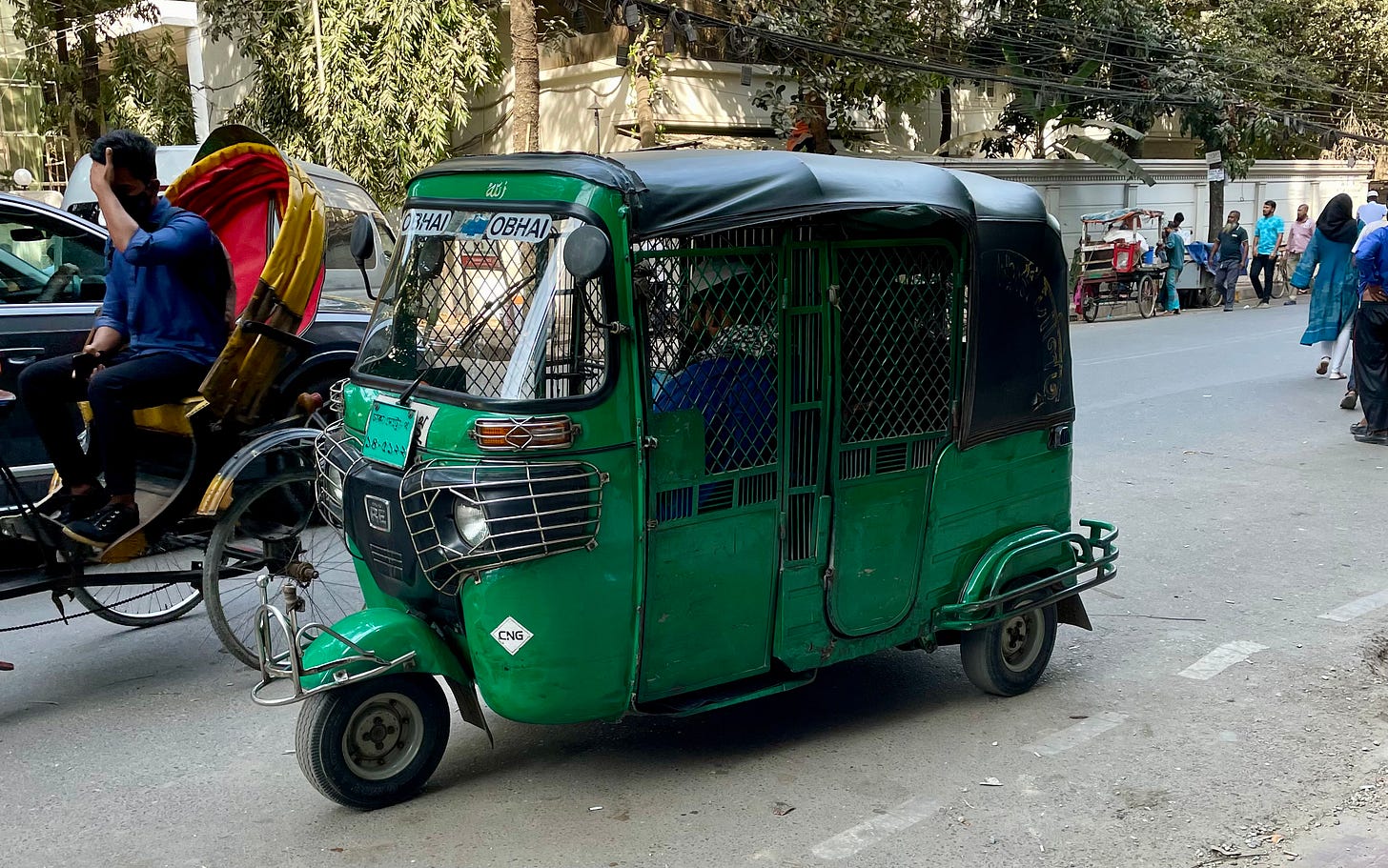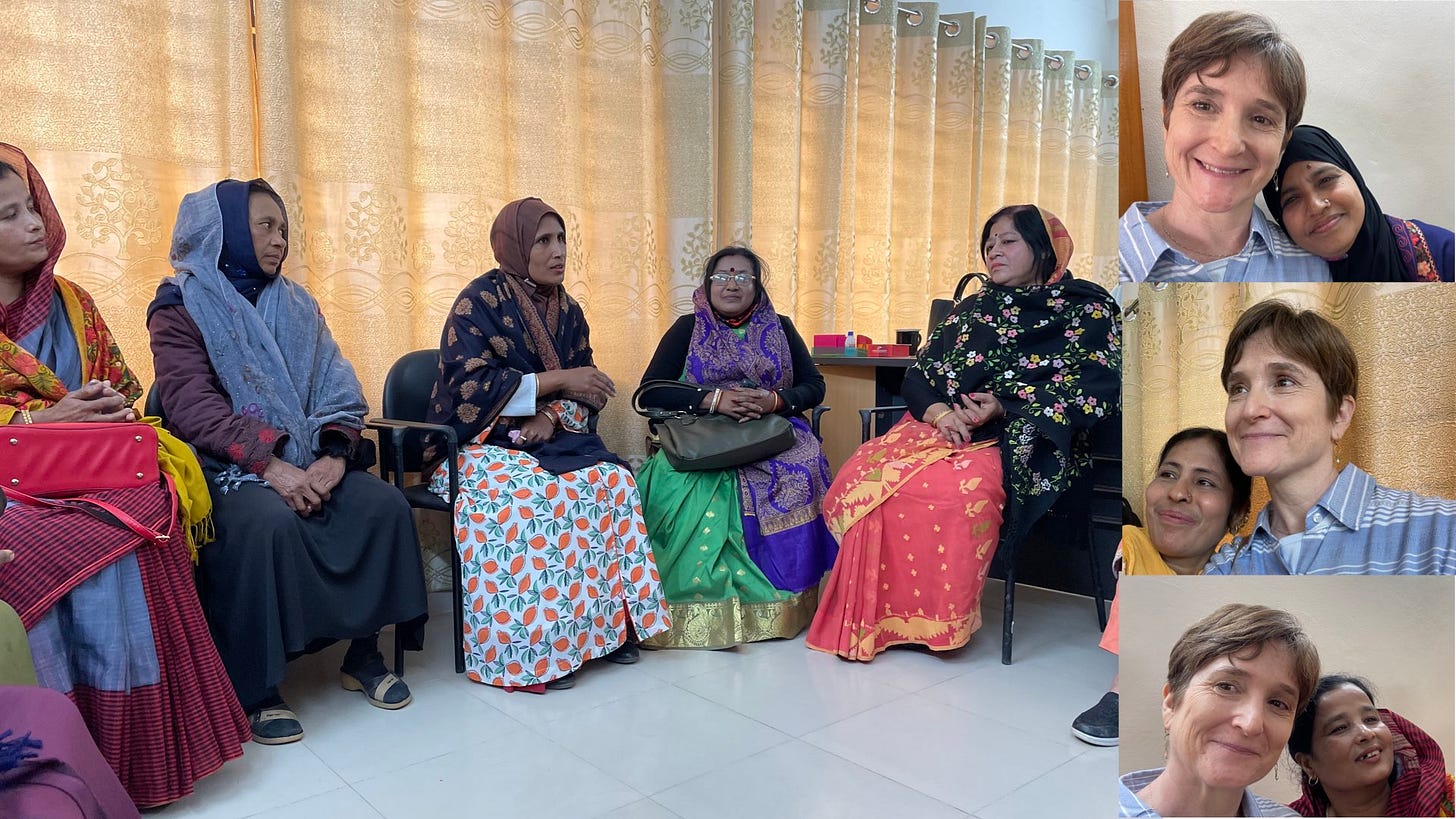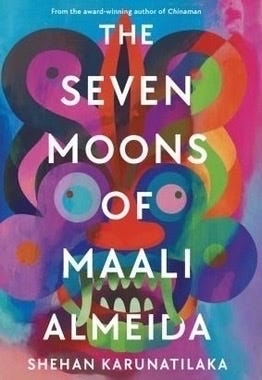Pohela Falgun! Happy first day of spring here in Bangladesh🌺🌼💐 This is Author Abroad, a newsletter on reading, writing, and reflections from a life abroad. This month, I’ll be talking about what it feels like to have a book out in the world, my mixed impressions of Dhaka, and some of the fascinating books I’ve read of late.
Writing
The big news this month is that my author copies finally arrived—only 47 days after publication!! Author copies typically arrive a few weeks before publication, so these were on the late side, but I suppose they did have to travel halfway across the world! It’s both exciting and a little surreal to hold The Golden Land in my hands, all that blood, sweat and tears (ok, no blood) distilled into an 8” by 5” pound of paper. I’m still amazed that The Golden Land has been published when it could just as easily have become a neglected icon on my computer screen. To all the writers out there, don’t give up hope!
As more people read The Golden Land, I’ve been fascinated to see which parts of the book resonate with different readers. Some latch on to the marionettes, others to the story of Queen Supayalat, still others to the history of Myanmar. Just the other day, two readers asked me about the ChickenKing incident. I suppose what we take away from a book depends on what’s going on in our own lives, what topics or themes occupy our minds—whether consciously or subconsciously—in that moment of time. I know I can re-read a book several years later and come away with a completely different set of images and reactions to the first time I read it. This is what I love about novels; they engage our imagination and our subconscious in beautiful and magical ways.
Those who’ve known me a while know that I’m an introvert, who dislikes being the center of attention. The idea of being interviewed for a podcast initially gave me the jitters. Yet I’ve already recorded four such interviews, with another three lined up in the coming months! In the lead-up to each recording, I can make myself crazy trying to anticipate what kinds of questions the host might ask (an almost impossible task). Even after the interview goes live, it takes me several days to summon the courage to listen to it. And yet, in a strange way, I’ve come to enjoy these interviews. The questions asked have forced me to think more deeply about my life choices, about who I am, what is important to me, and how I got to where I am today. Podcast interviews will probably always make me nervous, but I’ve become more comfortable talking about the book, and, well, just being me. Not a bad thing at age 54.
Official reviews of The Golden Land are starting to trickle in. There’s been one in Necessary Fiction, one in The MV Times, and one in the Dhaka Business Standard, as well as a few book influencer reviews. However, the novel has very few reader reviews on Amazon and Goodreads, which is where most readers will look before deciding whether to buy the book. So if you’ve read The Golden Land and think others might enjoy reading it, please consider leaving an honest review/rating in one of those two places. It doesn’t have to be anything elaborate; just two or three words will suffice. (You don’t even need to give your full name.)
For those of you in the Boston area, I’d love to see you at my in-person launch on March 16 at 7:00 PM at Porter Square Books, where I’ll be chatting with one of my favorite mentors, the fabulous writer, Michael Lowenthal. The event is free and open to the public, but please RSVP at this link so the bookstore knows how many to expect. All proceeds from sales of The Golden Land generated at this event will benefit Boston Free Burma, a Boston-based initiative supporting the pro-democracy movement in Myanmar!
Life Abroad
My impressions of Dhaka continue to be mixed. On the one hand, I’ve grown increasingly fond of the Bangladeshi people, who are so fiercely proud of their language and culture. Brave a few words of Bangla, or ask them about their food or culture, and their delight is so genuine, it’s contagious. From what I’ve come to understand, this unflagging sense of national pride stems from historical attempts to suppress their language and culture between 1948 and 1971 when the territory was governed by Pakistan, as well as the shared trauma they endured during the War of Liberation from Pakistan in 1971.
I started Bangla lessons three weeks ago. Though I have no illusions about becoming fluent in the language, I enjoy learning about its structure and tuning my ears to its composition and sound. After just a few lessons, I’m able to pick out words and sounds that I hear spoken around me. I’m also pleased to have found a book club here in Dhaka of inspiring women who have lived all over the world. Finding a book club is one of the first steps to making a place feel like home for me, so I’m really happy about this. Another uplifting event this past week was the Dhaka Art Summit, an impressive, multistory exhibition of art and architecture with a focus on South Asia that attracted over half a million people.
On the flip side, I continue to dislike all the same aspects of Dhaka that others dislike: the noise, the air pollution, the traffic, the mosquitoes. What troubles me most, however, is the lack of women on the streets. On a good day, I might pass one woman for every 10 men I see; on a bad day, it can be as many as one in 50. (Yes, I do this tally nearly every time I go out.) Most studies I’ve seen estimate that less than one third of Bangladeshi women work outside the home. Those women who do leave their home to work tend to avoid walking, preferring private means of transportation such as car, bicycle rickshaw, or one of these cages on wheels called CNGs:
Why do so few Bangladeshi women work? Is it because they themselves don’t want to work, or because their families don’t allow them to work? And if the latter, is this because a) they’re worried for the woman’s safety outside the home; b) they’re concerned how society will perceive them if they were to allow the women in their family to join the workplace; or c) they genuinely believe that a woman’s place is in the home? I can’t help thinking it’s a case of inertia, people following the same traditions their parents and grandparents followed, regardless of what they truly want or believe is right. More on this as I learn more.
In late January, I traveled to Jashore district in southwestern Bangladesh to visit some projects specifically geared toward women’s empowerment. While the city of Jashore is just a smaller version of Dhaka, the endless green rice paddies, thatched huts, and flower farms of the countryside were a welcome sight. More refreshing still was the opportunity to meet with elected members of the Women’s Development Forum, whose task is to ensure that the concerns of women and families are reflected in the local budget. These women gave me hope; they were confident, outspoken, and not at all interested in staying at home. They also really liked taking selfies!
Reading
This month, I read The Good Muslim, Book Two in Tahmima Anam’s Bangla Desh trilogy. Picking up from where A Golden Age left off, The Good Muslim follows widowed mother Rehana, along with her two grown children, Maya and Sohail. Where the first book is set during Bangladesh’s War of Liberation from Pakistan in 1971, this one takes us through the first decade and a half after Independence, during which the country suffered through multiple dictators, presidential assassinations, and coups d’état as it struggled to find its feet. As Sohail and Maya become increasingly estranged, the novel explores the growing rift between hardline Muslim fundamentalists and those who want Bangladesh to be a more welcoming pluralistic society, a struggle that continues to this day. I really enjoyed both A Golden Age and The Good Muslim and look forward to reading the final book in the trilogy, The Bones of Grace.
The other book I read this month was the 2022 Booker-prize winning novel, The Seven Moons of Maali Almeida by Shehan Karunatilaka. A free-wheeling political satire about Sri Lanka, The Seven Moons of Maali Almeida is simultaneously serious and witty, grisly and insightful. The Booker prize judges said they particularly admired “the ambition of its scope, and the hilarious audacity of its narrative techniques.” I couldn’t agree more. In addition to the narrator being DEAD, the novel is written in SECOND PERSON, as in the following quote:
“You have seen dead bodies, more than your fair share, and you always knew where the souls had gone. The same place the flame goes when you snuff it. The place a word goes when you say it.”
I found myself waking up in the middle of the night, thinking in this same voice😱 I can’t exactly say I enjoyed (as in felt joy) reading it—there was a little too much blood and gore for my taste—but I couldn’t put it down either.
That’s it for this month. Drop me a line and let me know what you think!
💕Liz







